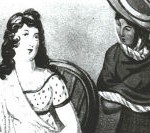17 October, 2017
The thalidomide tragedy in the late 1950s was a watershed moment for pharmaceutical regulation.
The paper The thalidomide tragedy: the struggle for victims’ rights and improved pharmaceutical regulation (HCS-Manguinhos vol.24 no.3 July/Sept. 2017) revisits the history of thalidomide and its consequences for the victims in Brazil.
Thalidomide was presented in the 1950s as a safe drug, but it was subsequently banned for its harmful effects, and in recent years has returned to treat patients with illnesses such as cancer and Hansen’s disease.
Written by
, leading to the application of the concepts of safety and pharmacovigilance for medications.
As the paper shows, the thalidomide case also triggered ethical debates about the practices of pharmaceutical industry and the rights of people with disabilities caused by the drug.
Related article in Manguinhos:
Moro, Adriana and Invernizzi, Noela. The thalidomide tragedy: the struggle for victims’ rights and improved pharmaceutical regulation. Hist. cienc. saude-Manguinhos, Set 2017, vol.24, no.3, p.603-622. ISSN 0104-5970
García, Víctor Manuel. Remedios secretos, drogas heroicas y medicinas de patente: una historia de la regulación de los medicamentos en Antioquia, 1900-1940. Hist. cienc. saude-Manguinhos, Dic 2007, vol.14, no.4, p.1437-1437. ISSN 0104-5970











